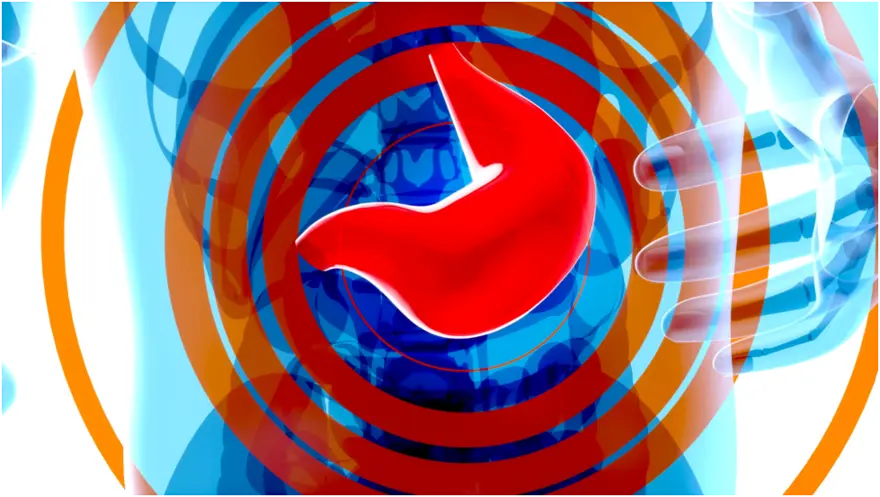Preventive Healthcare
Hepatomegaly: Symptoms, Causes, Diagnosis, and More
11012 Views
0

What is Hepatomegaly?
Hepatomegaly is a liver condition that causes an enlargement of the liver, and it swells up beyond the normal size. The liver is one of the most crucial organs in your body, as it is responsible for preliminary digestion, filtering of toxins, and regulation of blood cholesterol. This enlargement of the liver is always indicative of some problem with the liver, such as excess fat deposits or some form of liver disease. But sometimes, this enlarged liver is also an indication of disease related to the heart or blood.
Therefore, it is advisable to meet the healthcare provider in case of hepatomegaly to find out the underlying cause of the enlarged liver. Moreover, if you exhibit any hepatomegaly symptoms, it is crucial to get it treated as soon as possible.
Is an Enlarged Liver Dangerous?
While enlargement of the liver is not fatal in any way, it is generally indicative of an underlying disorder that needs your attention. Depending on the cause, this condition can be more or less severe.
However, enlargement of the liver is always painful and detrimental to one’s quality of life. Thus, if you seem to be experiencing abdominal pain from time to time, it is best that you consult a specialist to know if you need hepatomegaly treatment.
What are the Signs and Symptoms of Hepatomegaly?
Hepatomegaly is generally unnoticeable, except in severe cases of abdominal pain or pain in the upper right abdomen. Regular bloating is another vital sign of an enlarged liver. However, these are all signs of mild hepatomegaly as opposed to a serious case, which a professional healthcare provider can further confirm by examining your body.
In the case of a serious disorder, you can experience the following hepatomegaly symptoms:
- Tiredness and fatigue
- Nausea and a lack of hunger
- Jaundiced eyes and skin
- Dark urine and light-coloured stool
- Itchiness
- Splenomegaly
What Does An Enlarged Liver Indicate?
Enlarging of the liver is generally indicative of any of the following factors:
- Hepatitis or liver inflammation, which indicates the presence of toxins or viruses
- Excess fat which leads to fatty liver disorder
- Blood vessels in the liver being blocked or clotted
- Growths in the liver, either benign or malignant
What are the Causes of Hepatomegaly?
Enlargement of the liver may be caused due to several reasons, which can vary from each other. Some of the common hepatomegaly causes include:
- Hepatitis
Hepatitis is simply another name for liver inflammation. There are several types of hepatitis, including viral hepatitis from viruses, toxic hepatitis from medicinal overdose, and alcoholic hepatitis due to overconsumption of alcohol.
- Fatty Liver Syndrome
Fatty liver is most often caused due to obesity and overeating, leading to excess fat deposits around the liver. It is most often seen in the case of alcoholics, but in rare cases, someone can get non-alcoholic fatty liver disease as well.
- Heart Failure
While this is not a direct result, congestive heart failure can lead to a blockage in the hepatic vein, which is the primary vein running from the liver to the heart. This can lead to liver enlargement, resulting in abdominal pain.
- Hepatocellular Carcinoma
Commonly called liver cancer, it can result in the formation of malignant cysts within the liver organ, resulting in an enlarged structure. While it is not operable in critical cases, a mild case of cancer is still fixable by amputating a cross-section of the liver.
Apart from these, there are other hepatomegaly causes as well, which include cirrhosis, leukaemia, liver lesions, and autoimmune diseases.
What are the Risk Factors for Hepatomegaly?
If you want to know if you are sensitive to hepatomegaly disease, these are some of the risk factors associated with:
- Overdrinking and Overeating
By far, the greatest risk is posed to those who indulge in frequent alcohol consumption and overeat regularly. The liver’s primary function is to digest food; overeating and overdrinking harms the liver the most.
- Large medicine doses
People who have chronic conditions due to which they have to take heavy doses of medicine are more susceptible to enlargement of the liver than general people. Excessive medicine intake leads to trace portions getting deposited in the liver, leading to toxic hepatitis.
- Heart Patients
Heart patients are more exposed to blockages in the veins and arteries, which can occur within the liver as well. Thus, once they get heart disease, it makes them highly susceptible to hepatomegaly as well.
How Will Your Doctor Diagnose Hepatomegaly?
Hepatomegaly is generally difficult to diagnose if the patient does not feel any abdominal pain. Thus, people may live for years without knowing they have an enlarged liver.
The first step of hepatomegaly treatment is to diagnose if you have an enlarged liver or not. To do this, your doctor will check your liver using his fingers. The liver is normally indistinguishable by touch. Thus, the enlarged liver will make itself felt naturally through the lower right ribcage. However, in cases of mild enlarged liver hepatomegaly, a specialist may prescribe any of the following procedures:
- Blood Test
A complete blood test and lipid profile will reveal if your body has excess Red blood cells (RBCs) or White blood cells (WBCs). Excess WBCs are always indicative of an underlying infection. In addition, your lipid profile will show the quantity of cholesterol and triglycerides in the body, which are both contributing factors to hepatomegaly symptoms.
- LFT
LFT or liver function test will determine the health of your liver and the enzymes present within it. It is a surefire way to know if the liver has an abnormal amount of enzymes, which is indicative of hepatomegaly.
- Abdominal X-Ray
An abdominal X-ray is a non-invasive procedure that takes an X-ray image of the lower abdomen, giving an idea of the size of the liver and producing a better result than blood tests.
- CT Scan
CT scans produce a higher-resolution image and are prescribed when the hepatomegaly symptoms are milder in nature. If there is reason for doubt, your doctor will start you on hepatomegaly treatment.
- MRI and Ultrasound
Both of these procedures are now common in hepatomegaly treatment and diagnosis. They help to understand the status of the liver and give a clearer picture of the actual scenario.
These are the primary ways in which specialists diagnose hepatomegaly. Once the results are out and there is evidence of hepatomegaly, your specialist will immediately start you on a hepatomegaly treatment routine. The effects of hepatomegaly are, however, reversible, and with time, hepatomegaly symptoms will fade.
What are the Possible Complications of Hepatomegaly?
While hepatomegaly symptoms are manageable, they can cause certain complications if they persist. For instance, the liver may accumulate fluid over time, leading to a stomach that sticks out and causes abdominal pain. In addition, the liver may get jaundiced, which can be fatal if not treated timely. This could also lead to loss of appetite and lead to malnourishment, and chronic indigestion problems. In addition, severe abdominal pain can drastically reduce your quality of life.
Thus, if you feel you are vulnerable to any of the hepatomegaly causes, it is important to get hepatomegaly treatment as soon as possible.
What are the Treatments for Hepatomegaly?
Your hepatomegaly treatment routine will depend partly on your hepatomegaly causes. Thus, if you have alcoholic hepatitis leading to hepatomegaly, your doctor will prescribe a lifestyle change and prevent drinking. However, if there is an underlying hepatomegaly cause, such as cancer, it will become crucial to remove cancer as soon as possible.
Thus, your hepatomegaly treatment can include:
- Medications for treating liver infections and viral hepatitis
- Chemotherapy and surgery to remove liver cancer
- Quitting alcohol and other substances for alcoholic hepatitis
- Stopping any medications for toxic hepatitis
- Liver transplant for long-term irreversible damage
In addition, your doctor may prescribe you undergo a lifestyle change, indulge in more exercises and maintain a healthy diet.
How can you Prevent Hepatomegaly?
If you feel you are showing hepatomegaly symptoms, these are some of the few changes you can make to prevent it from escalating:
- Start exercising to reduce any chances of obesity and fat deposits
- Start eating healthy foods, including green leafy vegetables and lean meat
- Abstain from any alcohol intake for a while, and if possible, quit drinking
- Quit smoking as it leads to heart defects, which is a prime hepatomegaly cause
- Consult a specialist before taking any supplements, as they may cause toxic hepatitis
- If you are on heavy medication, have a talk about reducing the dosage
- If you work around toxic chemicals, follow proper safety regulations
These are some of the best ways in which you can manage hepatomegaly symptoms if they appear, as well as reduce the need for hepatomegaly treatment.
Conclusion
Enlarging of the liver is a symptom rather than a disease. Not all the hepatomegaly symptoms indicate medical emergencies, but you must consult your healthcare provider as such symptoms deserve medical attention. If your doctor identifies that your liver is enlarged, the reason behind such enlargement is usually associated with liver disease and inflammation, but sometimes, results can be unexpected. The healthcare professional may recommend a blood test or any other test to know the exact hepatomegaly causes for confirmation. So, whether it is a blood test or any test, with around 4000+ clinical laboratory tests Metropolis Labs offers all under one roof. Known for accurate reports, book your slot and enjoy home-collection service at affordable charges.
























